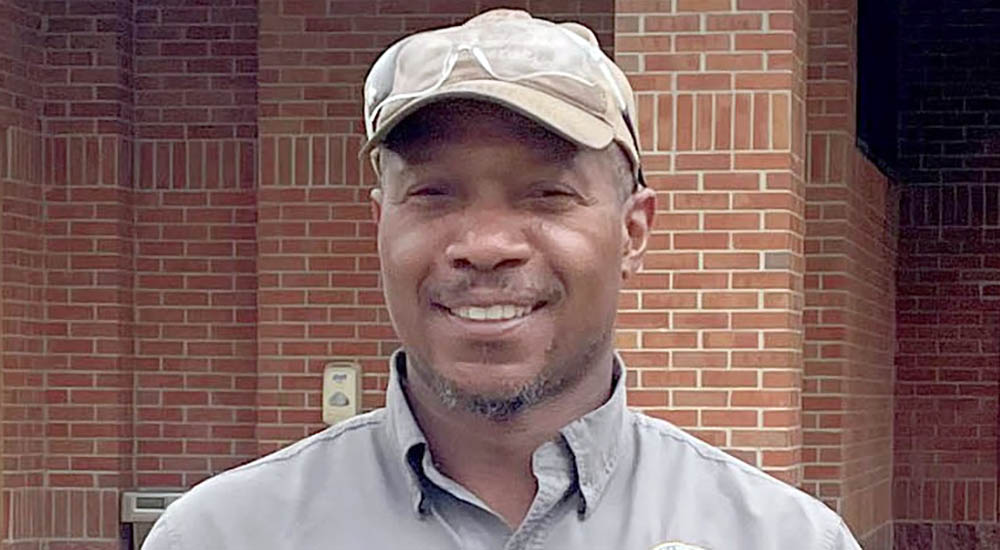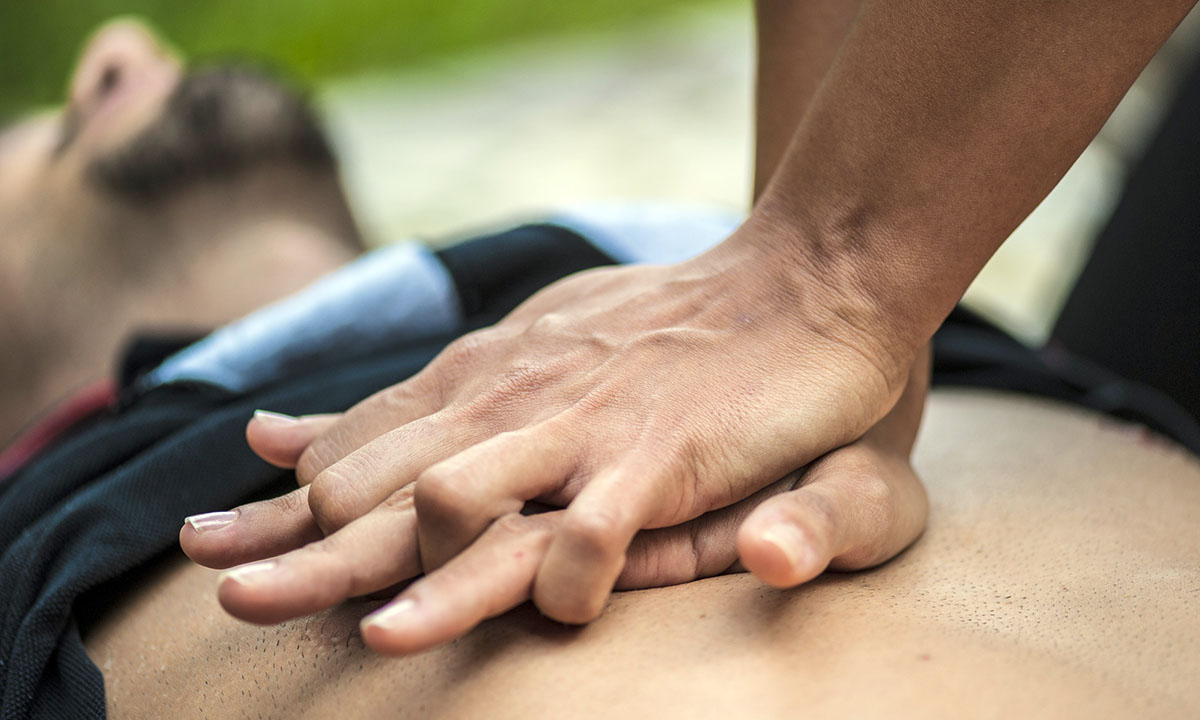Recently on his way to work at the Natchez National Cemetery in Mississippi, maintenance worker Rickey Allen noticed a man on the ground, his truck doors wide open, in a vacant parking lot. The man wasn’t moving. A woman hovered over him, and she seemed to be frantic and in need of help.
Allen and another driver quickly pulled over. The fellow good Samaritan glanced at the unresponsive man, looked nervously at Allen, and asked if he knew CPR.
“I didn’t answer and didn’t think about it. I checked for a pulse and there was none, so I started chest compressions immediately,” said Allen, a Coast Guard Veteran. “At the same time, I gave the other driver instructions on how to clear the airway, tilt the man’s head, and start mouth-to-mouth breathing.”
During his military service, Allen was an aviation crew member and participated in countless rescue and medevac missions. Trained in cardiopulmonary resuscitation (CPR), he assisted rescue divers to provide emergency medical care to numerous drowning victims.
Hyper focused and following his game plan
“It was the strangest thing. I was aware of everything going on around me, but I was hyper-focused on what needed to be done,” said Allen. “I was completely calm, on automatic pilot, monitoring and checking, and following my game plan.”
When two other passers-by stopped to help, Allen put them to work. After almost 20 minutes, he was able to get a pulse and the patient was finally breathing on his own. Police and paramedics then arrived and took over.
Recent studies suggest that less than half of those who suffer from cardiac arrest receive any type of CPR assistance from a bystander. When these types of situations arise, the common response is that no bystander was certified in CPR or that there was an aspect of fear involved, causing those around to hesitate in administering these critical skills.
Allen learned a few days later that the heart attack victim was life-flighted to a Jackson hospital about two hours away. Doctors there were able to successfully clear a 90-percent heart blockage and place a stent.
Sacred duty and important role in communities
“We are very proud of Rickey. He acted quickly and demonstrated the same care and compassion he does every day at his job,” said Ryan Hannon, and assistant director of the Natchez National Cemetery. “VA cemetery employees have a sacred duty to care for our nation’s Veterans and their families. We also play an important role in the communities where we live.”
Natchez National Cemetery is located on a bluff overlooking the Mississippi River. It features a wedding cake shape with a 5-level terrace at the back. The cemetery dates to 1866 and covers 25.7 acres. It was listed in the National Register of Historic Places in 1999.
Topics in this story
More Stories
Bob Jesse Award celebrates the achievements of a VA employee and a team or department that exemplifies innovative practices within VA.
The Medical Foster Home program offers Veterans an alternative to nursing homes.
Watch the Under Secretary for Health and a panel of experts discuss VA Health Connect tele-emergency care.







